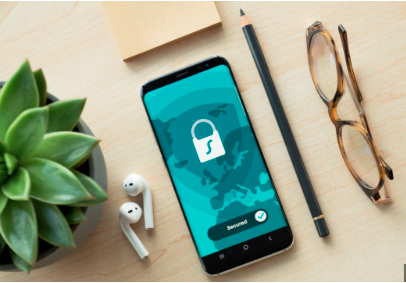In today’s digital age, online learning has become a valuable tool for people of all ages. Whether you’re taking online courses, attending webinars, or simply watching educational videos, you may be sharing personal data in the process. While most educational platforms are trustworthy, protecting your personal information is a must. Here are some essential tips to help you secure your data while learning online.
1. Choose Reputable Learning Platforms
Before signing up for an online course or educational platform, ensure it’s a legitimate, reputable site. Look for:
Positive reviews from reliable sources.
SSL certificates (indicated by “https://” in the URL), ensuring that data transferred is encrypted.
Clear privacy policies explaining how your data is handled.
2. Enable Two-Factor Authentication (2FA)
Many online platforms offer two-factor authentication (2FA) to protect your accounts. By enabling this feature, you add an extra layer of security, which requires you to enter a code sent to your mobile device or email in addition to your regular password. This makes it harder for unauthorized individuals to access your account.
3. Use Strong, Unique Passwords
A strong password is one of the simplest but most effective ways to protect your personal information. Avoid using easily guessable passwords like “123456” or “password.” Instead, create a unique combination of letters, numbers, and special characters. Consider using a password manager to store and generate strong passwords for different accounts.
4. Be Cautious About Sharing Personal Information
When registering for online courses, be cautious about the information you share. Many platforms may only require basic details like your name and email address. Avoid providing unnecessary personal information unless it’s essential for the course. If a site asks for sensitive information like your Social Security Number or bank account details, make sure it’s legitimate and necessary.
5. Monitor Your Privacy Settings
Most online platforms allow you to control the level of privacy for your profile. Take time to adjust your settings:
Set your social media profiles to private.
Limit who can see your course history or activity.
Disable any unnecessary data sharing options with third parties.
6. Use a Virtual Private Network (VPN)
When learning online, especially on public Wi-Fi networks, using a Virtual Private Network (VPN) can help protect your data. A VPN encrypts your internet connection, making it more difficult for hackers or third parties to access your browsing history or personal information.
7. Regularly Update Your Devices and Software
Keep your computer, tablet, or smartphone updated with the latest security patches and software updates. Developers frequently release updates to fix vulnerabilities, so regularly updating your devices is essential for preventing hackers from exploiting known weaknesses.
8. Recognize and Avoid Phishing Scams
Phishing is a common tactic used by cybercriminals to steal personal information. Be cautious when clicking on links or opening attachments in unsolicited emails or messages. Verify that any communication you receive is from a trusted source before entering any personal data.
9. Use Secure Payment Methods for Online Courses
When paying for online courses or certifications, always opt for secure payment methods. Using credit cards or trusted payment services like PayPal adds an extra layer of security, especially when making purchases on unfamiliar websites. Be cautious when asked to share sensitive payment information, and make sure the site is encrypted and legitimate.
10. Keep Backup Copies of Your Work
While it may not seem like a privacy concern, having backups of your learning materials can protect your work from accidental loss or system failure. Whether you store files on an external hard drive or use a cloud storage service, having a backup plan ensures you don’t lose important documents.
Conclusion
In the pursuit of knowledge, protecting your data should always be a priority. By following these simple but effective security practices, you can safeguard your personal information while enjoying the benefits of online learning. Stay informed, stay secure, and embrace the opportunities of digital education with peace of mind!














